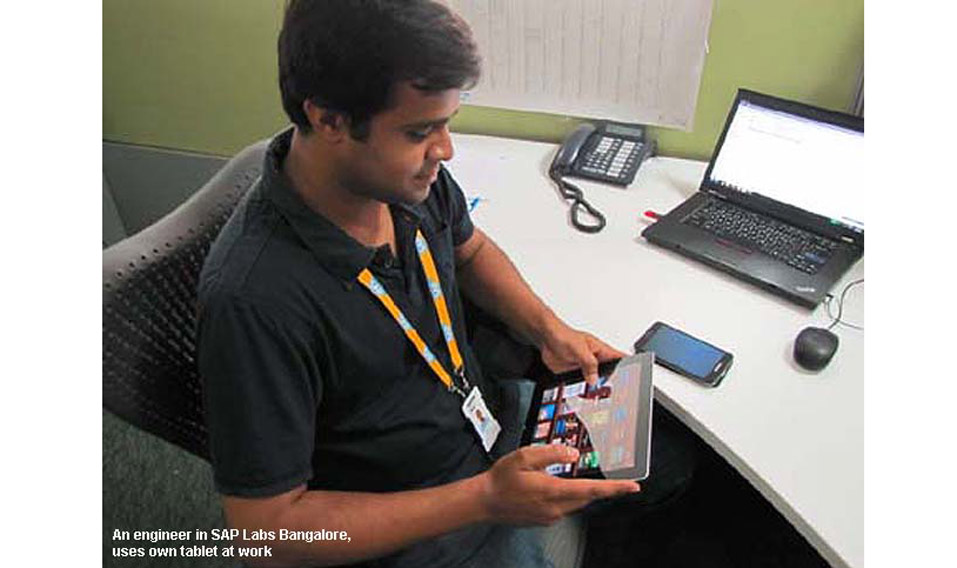Desktops are still the most popular corporate device among businesses, with more than half of workers receiving corporate-issued desktop PCs. Mobile device adoption in the workplace is not yet mature. Employees rely largely on personally owned mobile devices in the workplace, finds a recent survey by Gartner.
The survey findings are based on the 2016 Gartner Personal Technologies Study, which was conducted from June to August 2016 among 9,592 respondents in the U.S., the U.K. and Australia—and to that extent, might not reflect the situation in India, where significant numbers of employers provide neither desktops nor portable devices. Instead they have embraced the trend of BYOD or bring your own device.
Gartner finds that thirty-six percent of workers received laptops, including convertible laptops. Adoption of convertible laptops as a corporate-issued device is still very low, but has been gradually increasing. Gartner analysts expect that more employees will receive convertible laptops in the next three years, driven by the Windows 10 refresh that can enhance the user experience with touch-based input. Adding desktops and laptops (including convertible laptops) together, 75 percent of workers will receive at least one PC-type device in mature countries.
In contrast to the high numbers of corporate-issued PCs in the workplace, relatively few workers receive mobile devices. The majority of smartphones used in the workplace are personally owned devices — only 23 percent of employees surveyed are given corporate-issued smartphones.
In fact, more than half of employees who used smartphones at work rely solely on their personally owned smartphones.
The usage rate of personally owned tablets lags behind that of personally owned smartphones. Only 21 percent of employees use tablets—regardless of whether they are corporate issued or personally owned.
"In the era of mobility, it comes as something of a surprise that corporate usage of smartphones and tablets is not as high as PCs, even when the use of personally owned devices is taken into account," said. Mikako Kitagawa, principal research analyst at Gartner, "While it's true that the cost of providing mobile devices can quickly escalate, proper usage of mobile devices can increase productivity, which can easily justify the extra costs."
However push may come to shove with changing technology. With 4G VoLTE becoming more ubiquitous, mobile data speeds now rival desktop speeds—and there may be little rationale for preferring bulky PCs to smart phones.
TechNote: Bring your own device (BYOD)—also called bring your own technology (BYOT), bring your own phone (BYOP), and bring your own Personal Computer (BYOPC)—refers to the policy of permitting employees to bring personally owned devices (laptops, tablets, and smart phones) to their workplace, and to use those devices to access privileged company information and applications. The phenomenon is commonly referred to as IT consumerization. According to research by Logicalis, high-growth markets (including Brazil, Russia, India, UAE and Malaysia) demonstrate a much higher propensity to use their own device at work. Almost 75% of users in these countries did so, compared to 44% in the more mature developed markets ( source: Wikipedia)





